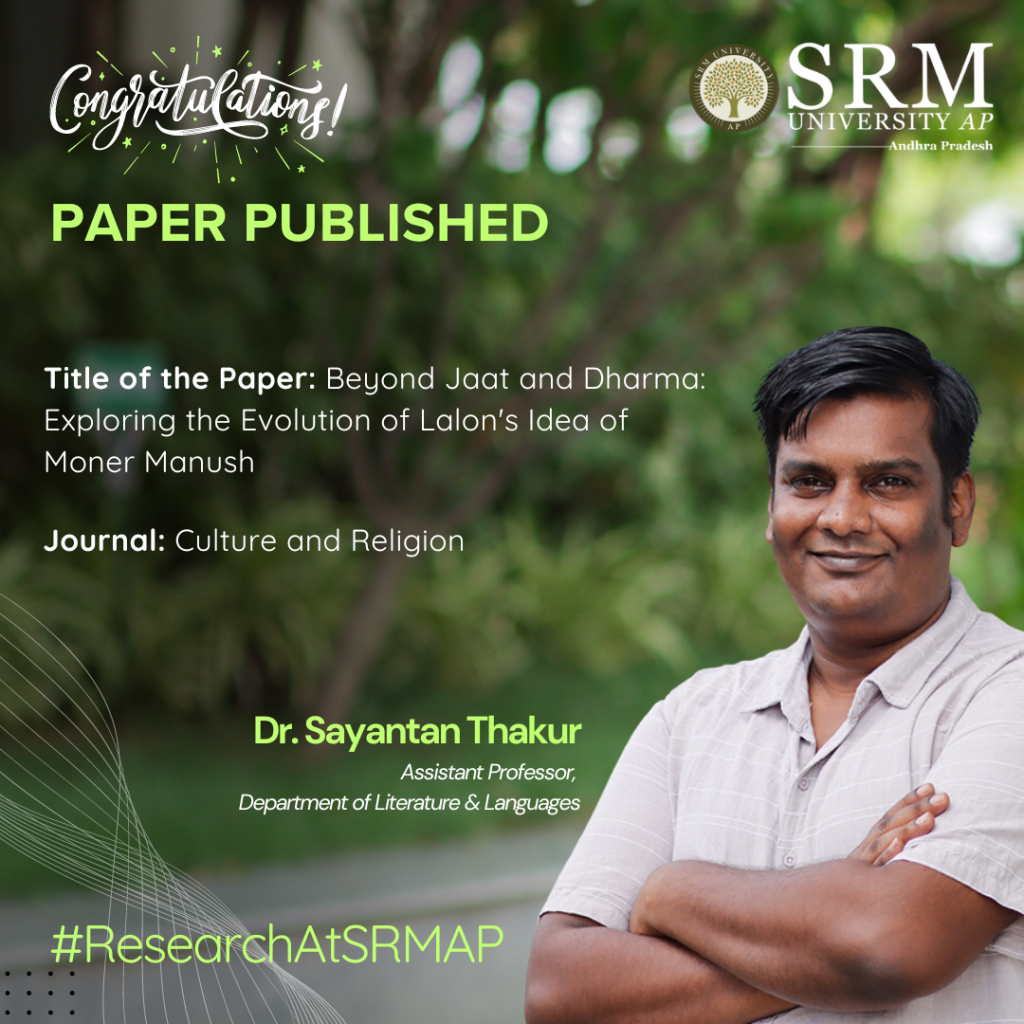
Today, we approach the topics of caste and religion with great sensitivity, aware of the deep-rooted complexities they carry. Yet, here was a character who transcended these societal boundaries, evolving into the embodiment of ‘Moner Manush’—a figure who rose above the constraints of identity to embrace a higher sense of spiritual unity and inclusiveness. Dr Sayantan Thakur, Assistant Professor at the Department of Literature and Languages closely reads into the intricacies of Lalon’s conceptualisation of man and the caste barriers in his research paper.
Abstract:
The paper entitled ‘Beyond ‘Jaat’ and Dharma: Exploring the Evolution of Lalon’s Idea of ‘Moner Manush’ delves into an in-depth exploration of Lalon’s conceptualization of ‘Moner Manush,’ transcending the conventional confines of ‘Jaat’ (caste) and Dharma (religion). Through a nuanced analysis of Lalon’s evolving perspectives, the study traces the transformative journey of the idea of ‘Moner Manush.’ By dissecting the lyrical and philosophical aspects, the paper illuminates how Lalon’s spiritual musings challenge societal norms, promoting a universal ethos that goes beyond distinctions. This inquiry aims to unravel the evolving nature of Lalon’s concept of ‘Moner Manush’ and its enduring significance in fostering inclusivity and spiritual interconnectedness, surpassing the limitations of caste and religion.
Practical Implementation and Social Implications:
The practical implementation of my research on “Beyond ‘Jaat’ and Dharma: Exploring the Evolution of Lalon’s Idea of ‘Moner Manush'” has profound social implications, particularly in fostering inclusivity and breaking down societal barriers. By promoting Lalon’s vision of transcending caste (jaat) and religious (dharma) divisions, this research advocates for a more egalitarian society where people are valued for their inner virtues, not external identities. In practical terms, this philosophy can be integrated into education, community-building, and social reform initiatives to encourage tolerance, empathy, and unity among diverse groups.
In multicultural societies, teaching Lalon’s ideas in schools and community programs can help dismantle deep-seated prejudices and promote cross-cultural understanding. Socially, the emphasis on the Moner Manush—the ideal human being—can encourage individuals to focus on self-reflection, moral development, and compassion, creating a more harmonious coexistence. Additionally, his philosophy can inform contemporary debates on identity politics, helping people prioritize human connections over rigid societal structures.
Future Research Plans
Regional Literature in Translation
Tantric Tradition and Eastern Indian Literature
Folk Music of Bengal
Indian Philosophy, Aesthetics & Literature

